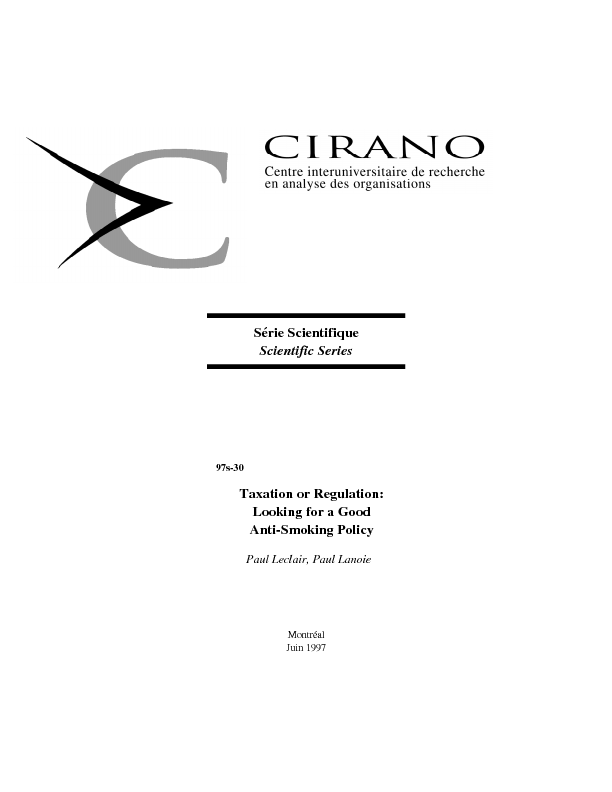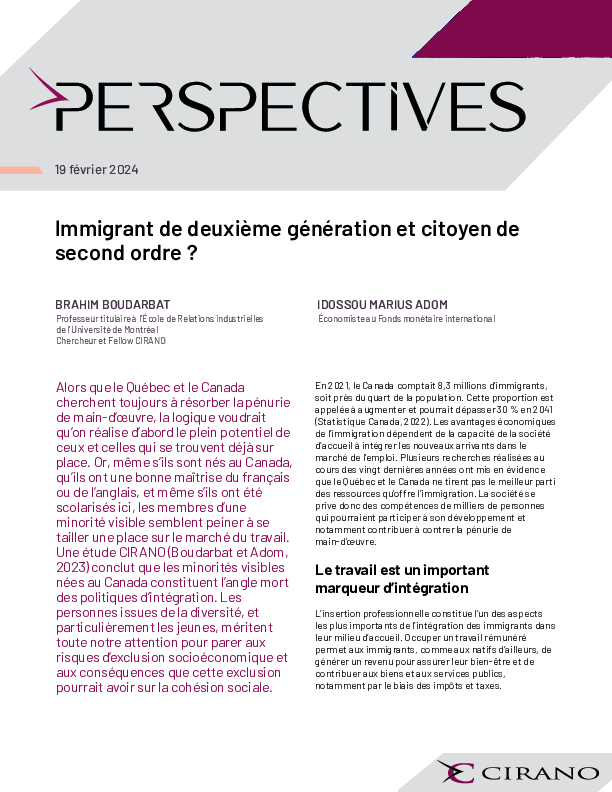Taxation or Regulation: Looking for a Good Anti-Smoking Policy
This paper investigates the relative ability of two anti-smoking policies, taxes and regulation, in inducing cigarette demand reductions and in providing incentives to stop smoking (or not to start). The analysis is based on Canadian data at the provincial level for the period 1982-1995. Our results show that cigarette demand responds to taxes (elasticity of 0.28), but not to regulation, while the converse is true for the proportion of smokers in the population. This suggests that both policies are acting in a complementary fashion to influence the incidence of smoking.
[ - ]




